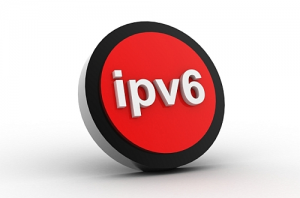Microsoft IPv4 Addresses Run Out. Faster Switch to IPv6 Needed
 Microsoft is running into technical difficulties with its Azure cloud hosting platform due to a lack of available IPv4 IP-based addresses to assign. Customers have started noticing that the IP addresses for cloud servers are showing up in some strange locations like Brazil even though the servers may in fact be located in the States or over in Europe.
Microsoft is running into technical difficulties with its Azure cloud hosting platform due to a lack of available IPv4 IP-based addresses to assign. Customers have started noticing that the IP addresses for cloud servers are showing up in some strange locations like Brazil even though the servers may in fact be located in the States or over in Europe.
What Is IPv4 and IPv6?
The problem stems for the original use of IPv4 standard which allowed for 4.3 billion IP addresses. At the infancy of the net with extremely slow adoption rates, it was inconceivable that more addresses than this would ever be needed.
However, time has marched on as the world has grown to adopt the use of the internet as a daily activity. The IPv4 standard suddenly seemed inadequate so the IPv6 standard was adopted which offered 128-bit addressing and provides over 40,282,366,920 billion billion billion individual IP addresses. It's hoped that this will be enough IP addresses this time...
Why The Fuss?
Despite the change and a previous “IPv6 Day” to publicize the change of internet communication methodologies, many organizations still use IPv4 mainly because not everyone has switched to devices that can handle IPv6 communications. For people still using an IPv4 device, they may not be able to easily find sites hosted using an IPv6 IP address. Therein lies the dilemma.
IPv4 Addresses Changed Hands
As if highlighting the issues, Microsoft previously acquired more than 665,000 IPv4 addresses in 2011 from Nortel for just over $7 million. Clearly though, this has not been enough of a stash to keep up with requirements.
How The Shortage Affects Microsoft Azure-hosted Sites
Users running virtual managers accessing an Azure cloud-hosted service often may find their browser redirecting unexpectedly to an international site instead of their own country. Essentially, the physical server may be located in America, but the IP address suggests that it is located elsewhere which causes confusion in the marketplace.
This has been creating such confusion that Microsoft has confirmed that it is in talks with a number of large geo-location database companies who inform where a given IP address is located. With these records altered, web browsers and other software that utilize these database location services will see the correct country once again and avoid any redirection too.
More a customer services headache for now, but the problem will continue to grow as more companies run out of spare IPv4 addresses themselves too.
